Results 11 to 18 of 18
Thread: New mystery stone..
-
07-16-2012, 11:08 AM #11

Yeah the pattern of his stone is similar but different. His 3rd pic is exactly how one of mine looks upclose though.
The stone in the middle of my pic actually came with a labeled box so not all DBs have that characteristic wave pattern, which make me believe the two at the right are DBs as well because they're the same in any other way.
adrspach, that's the floor. It happens to be the best lit area of my place so I take almost all pics there
-
07-16-2012, 11:17 AM #12Senior Member



- Join Date
- Apr 2008
- Location
- Essex, UK
- Posts
- 3,816
Thanked: 3164
It certainly shares some of the characteristics of a Dalmore Blue, but I agree that the yellowness you most often see in them is missing and the pattern isn't the usual. striking pattern that makes them such a lovely stone. Here are a few more confirmed examples - the banding in the sides is a bit like yours:
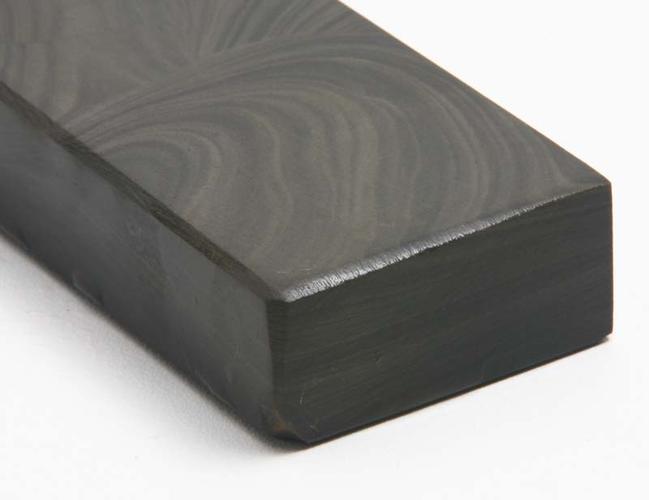
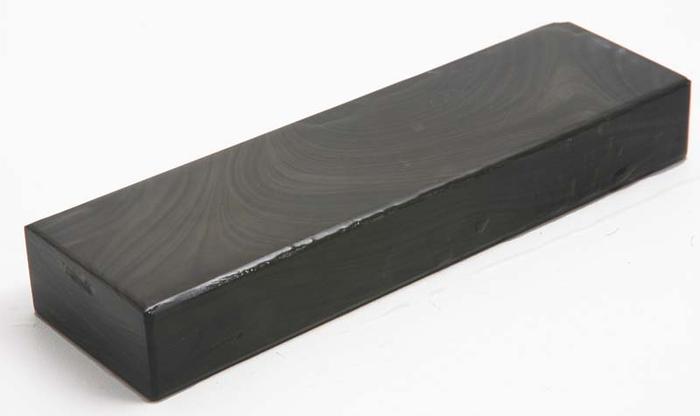
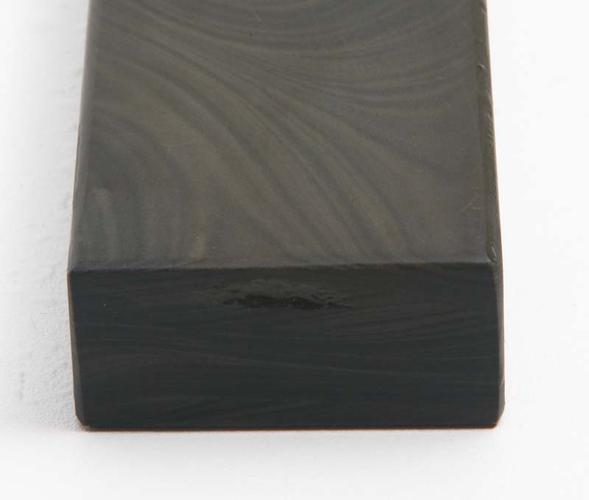
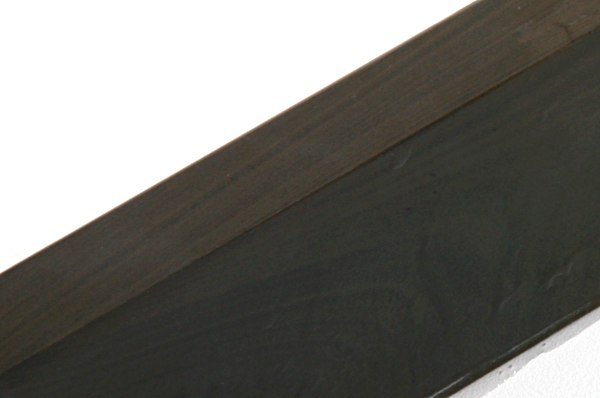
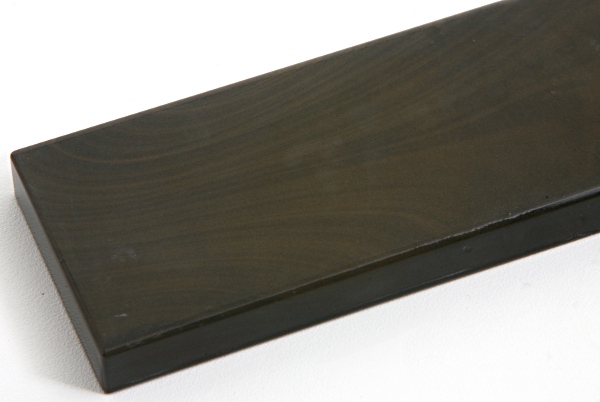
However, as they are natural stones then I suppose they reserve to right to assume different looks - just to confuse us!
Regards,
Neil
-
-
07-17-2012, 12:28 AM #13Senior Member

- Join Date
- Jul 2011
- Location
- Ponca City, Oklahoma
- Posts
- 605
Thanked: 66
Here are a few more out in the sun... If its not a Dalmore , what could it be?
It still has some big scratches in the side, because my front porch is my fastest lapper.
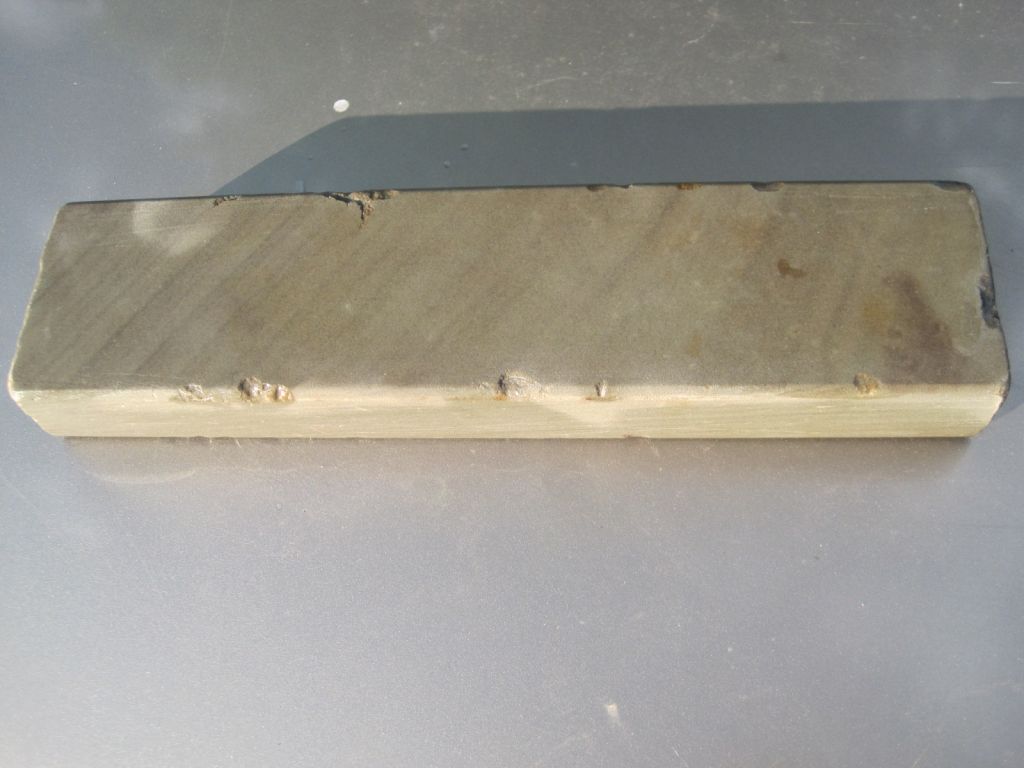
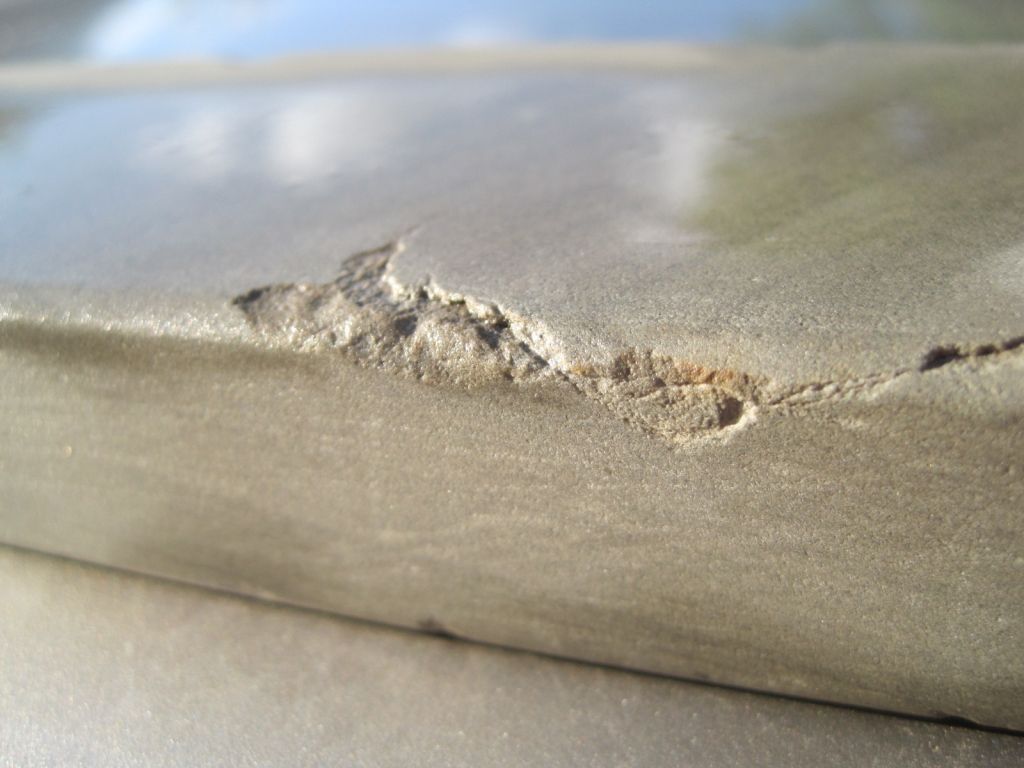
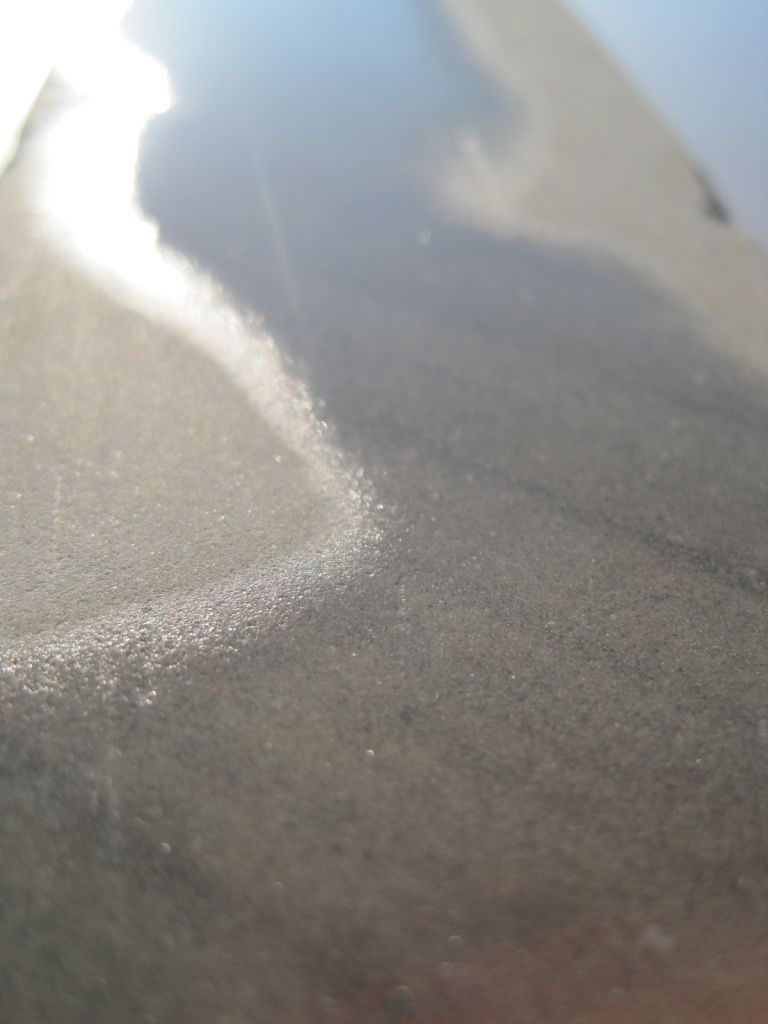
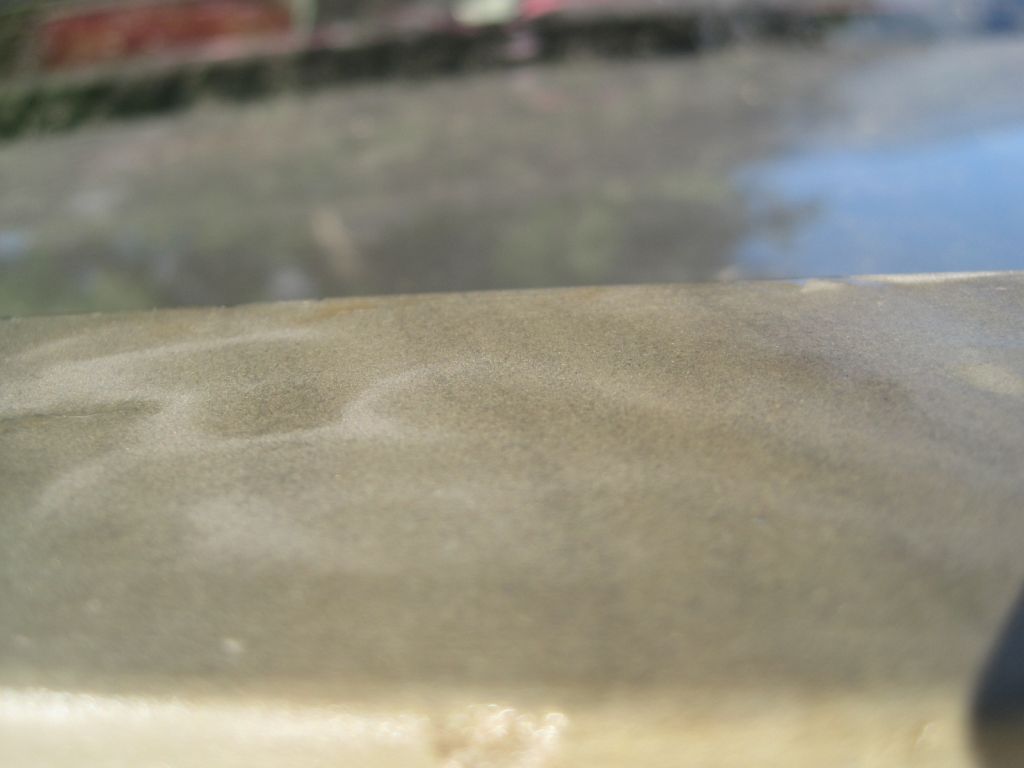
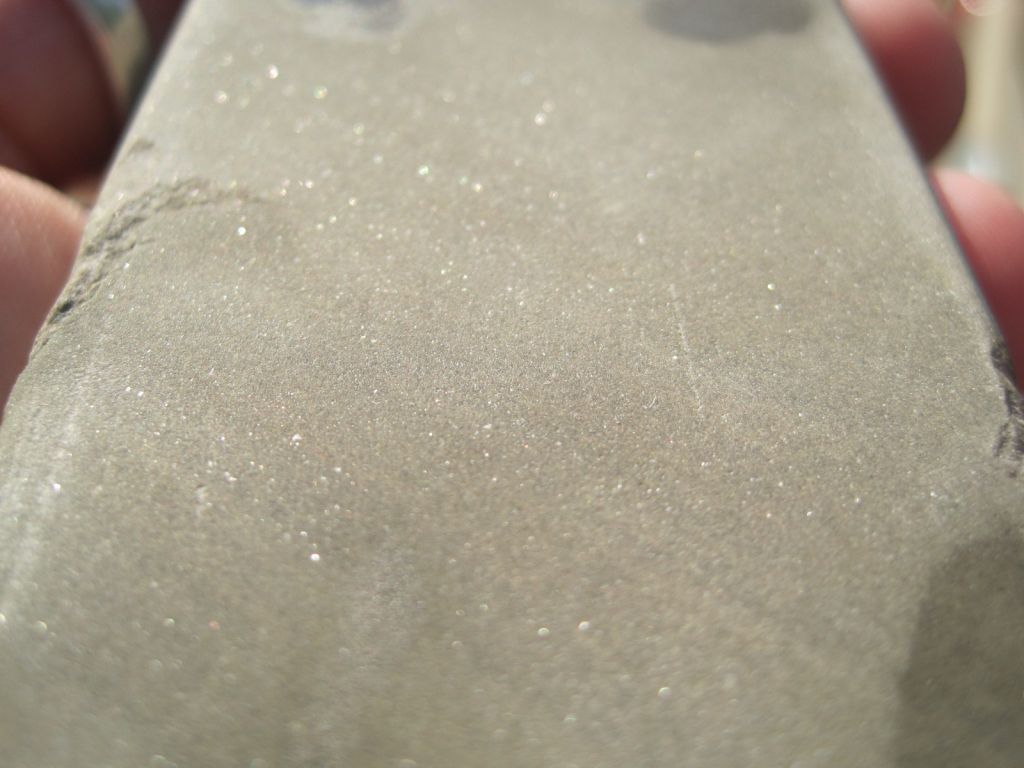
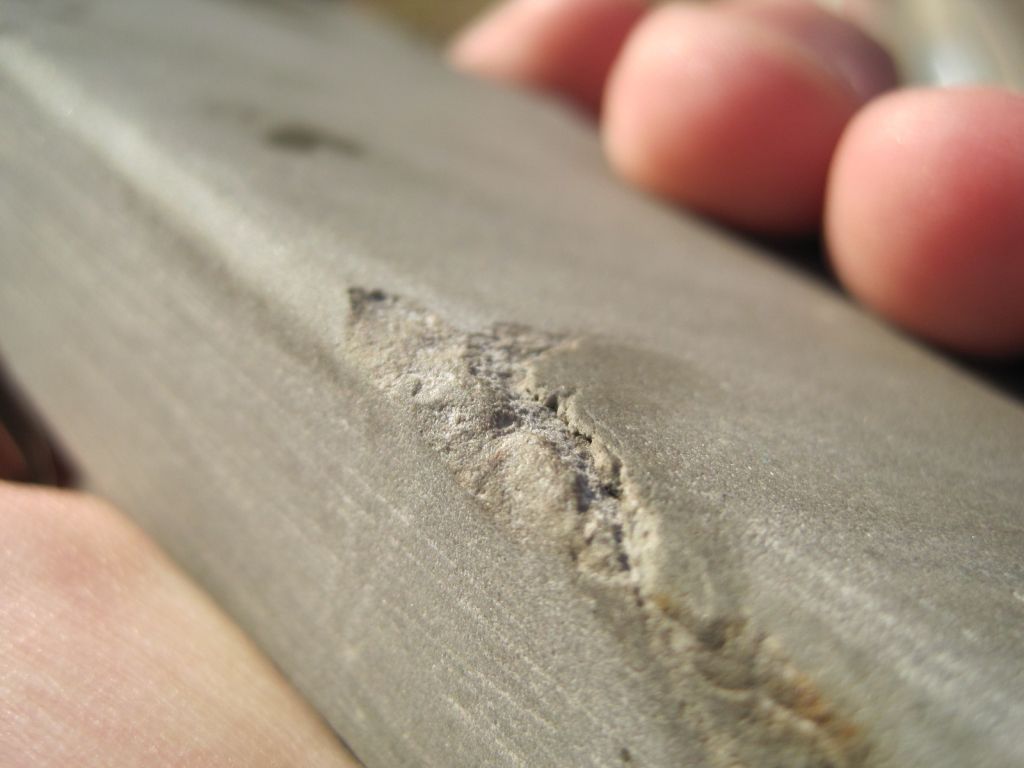
-
07-17-2012, 08:35 AM #14Senior Member



- Join Date
- Apr 2008
- Location
- Essex, UK
- Posts
- 3,816
Thanked: 3164
I'm pretty sure it is some type of DB variant - the chips on one I have in front of me at the moment look exactly the same as the chips on yours. Perhaps your stone has been cut at a different angle to the way they are usually cut, leaving banding exposed rather than layer surfaces? Of course, there wasn't anyone laying down the elements that make these stones - they occurred naturally by deposition of minerals, etc, in water - sedimentary, before being changed by natural forces. Over time a number of things change - the dust picked up by air and water changes, water streams change course and begin adding new minerals to the mix or losing what they abraded from wherever they passed in former times, fires and volcanic action filled the air with particles, still waters that gently laid down their deposits became turbulent - in short, anything could change at any time, and change over an extended geological period is more or less a given.
The hard thing to ascertain is when something has changed radically enough to no longer be what we are familiar with, but to be something else entirely, an unknown. We are going from "if it looks like a dalmore blue, feels like a dalmore blue and hones like a dalmore blue then it is a dalmore blue" to "it doesn't look much like a dalmore blue, it feels like a dalmore blue, but it doesn't hone like a dalmore blue, so it might be a dalmore blue" - a kind of leap of faith!
What seems to have happened to your stone when it was being laid down is that heavier, more abrasive particles seem to have been giving way to finer particles, as most DBs are rated by most users in the 5k range, and you say your one is around 8k+ (usual boring proviso about using grit ratings to judge natural stones applies!). Can it still be called a Dalmore Blue, though? I guess only a trained geologist with the correct analytical gear can answer that one, and I don't see that happening anytime soon!
Regards,
Neil
-
07-17-2012, 02:40 PM #15Senior Member

- Join Date
- Jul 2011
- Location
- Ponca City, Oklahoma
- Posts
- 605
Thanked: 66
I should have been more clear and updated my first post, more testing (using my teeth to feel the grit). I determined this is closer to 4k ish. +/- 2k
Thank you for the interesting read.
-
07-17-2012, 06:21 PM #16Senior Member

- Join Date
- Mar 2009
- Posts
- 1,211
Thanked: 202
Thank you for those additional pictures. At first I thought of LI but from the picture of the chip it possible to say it is not LI. As with question of what it is? I would tend to go with Neil even thought I was also thinking of Douglas hone as described by Alex some time ago.
-
07-18-2012, 03:20 PM #17aka shooter74743




- Join Date
- Sep 2009
- Location
- SE Oklahoma/NE Texas
- Posts
- 7,285
- Blog Entries
- 4
Thanked: 1936
Have you looked at any Hindostan stones? They were cut different ways and they show many different layers. From what I recall, mine is in the 2-4K range.
Southeastern Oklahoma/Northeastern Texas helper. Please don't hesitate to contact me.
Thank you and God Bless, Scott
-
07-19-2012, 01:44 AM #18Senior Member

- Join Date
- Jul 2011
- Location
- Ponca City, Oklahoma
- Posts
- 605
Thanked: 66
I googled Hindostan stone, and not a single photo looks any thing like mine.
One thing that makes me sold on the D.B. Is how white it is when dry. I can put a diamond lap to it. And it is like talcum powder comming off. You can see I the one photo of my finger. My stone looks ALOT like piet's when dry.


 4Likes
4Likes LinkBack URL
LinkBack URL About LinkBacks
About LinkBacks






 Reply With Quote
Reply With Quote